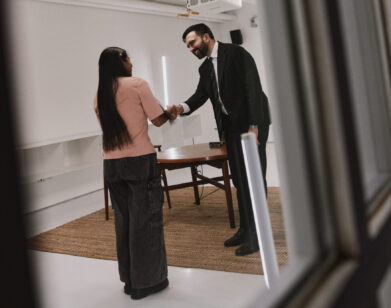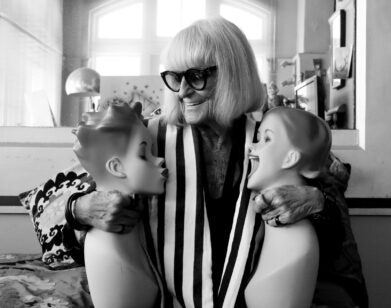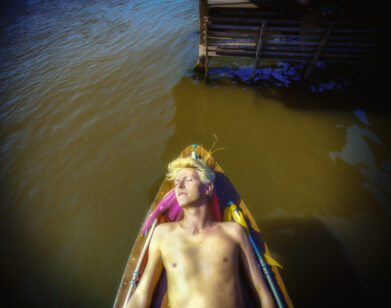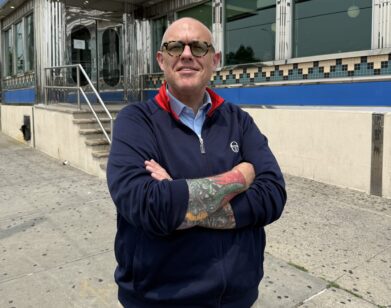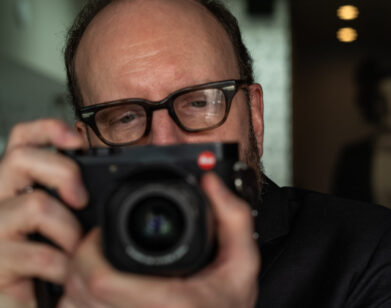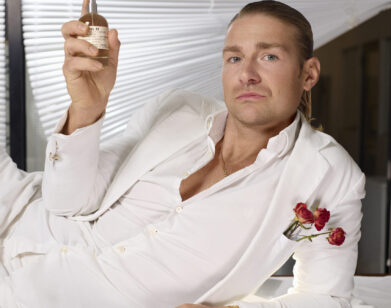The Restaurant’s A Stage and Omar Hernandez Is Its Player
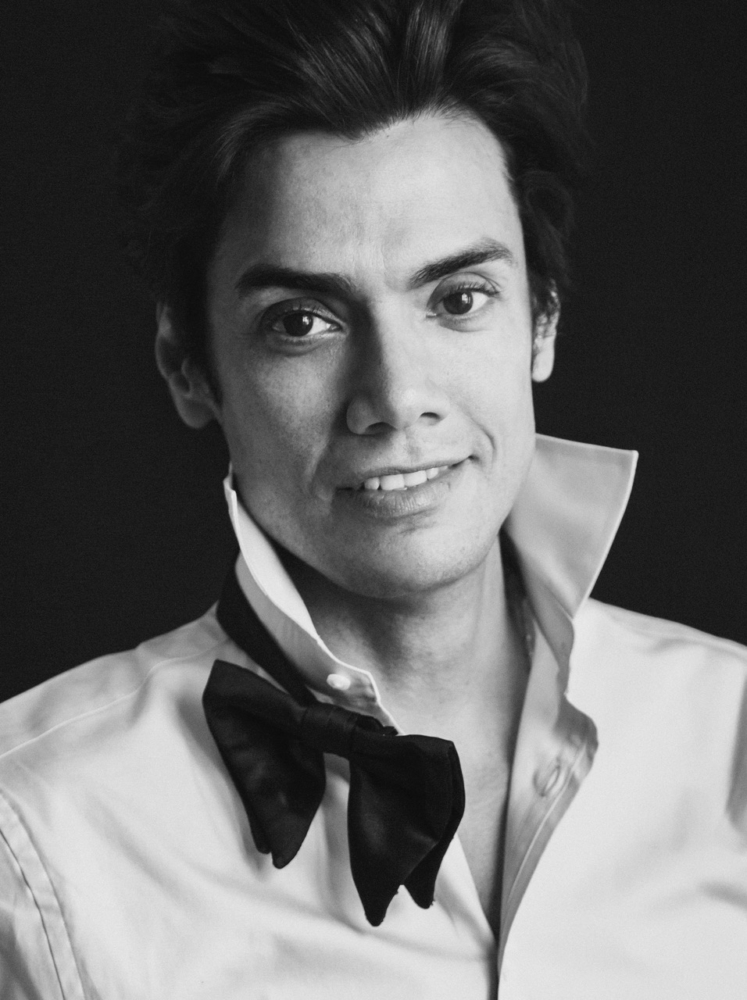
Photo by Derrick Leung.
When Omar Hernandez first opened his downtown private club Omar’s La Ranita, he courted a suave list of infamous A-listers, a modern day Humphrey Bogart in Casablanca. Then, with Omar’s at Vaucluse, his dimly-lit French brasserie, Hernandez charmed the Upper East Side elite, evoking a modern day M. Gustave of The Grand Budapest Hotel. Finally, with the upcoming opening of Omar’s La Boîte on January 15th, Hernandez is becoming fully himself—a connoisseur of fun, fantasy, and cinematic glamour for the city’s well-heeled. Having studied theatre and endured a brief stint as an actor, Hernandez retains the sense of beauty and theatricality of Manhattan nightlife in his clubs and restaurants. “I’m playing me this time downtown, and there’s a lot of things that will be revealed about what I’m about,” Hernandez says.
Born in Venezuela as the child of a theater actress, who he thanks for his flair and showmanship, Hernandez quickly rose to self-described “Director of Spark” at Soho’s Mercer Kitchen under the tutelage of the celebrity hotelier André Balazs. In his orbit circle an assortment of New York characters, from Al Pacino to Michael Cohen to Spike Lee. It’s no simple task to get his guests to harmonize with one other under one roof, let alone a table apart, but Hernandez manages an atmosphere that provides perpetual entertainment. “It’s like when you go to your mom’s house and you hate your brother but you have to behave with respect for it. We let them feel they are in their home.” No doubt, every personality is at home at a Hernandez spot.
———
EVALENA LABAYEN: I read somewhere that you compared yourself as a host to Rick from Casablanca, which I thought was pretty accurate, but you actually reminded me of another movie character: M. Gustave from The Grand Budapest Hotel.
OMAR HERNANDEZ: It’s funny you say that because when I mentioned Rick from Casablanca, it was when I first opened Omar’s La Ranita downtown on ninth street. And then I think The Grand Budapest Hotel, it’s also true, because the character was about this guy who basically charmed over ladies that were out there. If anything, women always have been my savior. It’s interesting in this business, because usually it’s the other way around, but I always had a great affinity, and I, having been a mama’s boy, have a very natural connection with women. I was telling the guys with Purple [PR], “I think this time around, I get to play Omar in my space and I think it will be the final character for Omar. I’m playing me this time downtown, and there’s a lot of things that will be revealed about what I’m about.”
LABAYEN: How would you define your own philosophy of hospitality?
HERNANDEZ: At this stage, it’s almost like in order to preserve what’s important, I always believe you have to idealize it. I feel that New York is sort of in a transition stage right now, where we are embracing the new, yet we don’t know what that is exactly. I’m not naive about it. It is ever-changing, but one thing that I know for sure is that people are longing for intersubjective types of relationships and connections—it’s a very visceral thing. It’s not digital, it’s not text, it’s not social media. That’s one of the reasons why we took the chance on this new space in downtown, because I felt that having a 4AM license, a live band, and a DJ allowed the perfect platform to bring all those elements that make New York great and that still define New York.
LABAYEN: Let’s talk about the new space. What is your artistic inspiration vision for how you want La Boîte to be?
HERNANDEZ: Well, downtown for me, it was more of a need of being in your body. I was trying to find a space that could convey all the best that can be offered in terms of hospitality, but also how people look when they go out. It was a bit of an interactive space that can provide great food, great entertainment, great music, dancing, all of it. The concept is the best cocktail party you are ever going to be invited to because it’s not a restaurant.
I was always moved by the 1970s American TV shows, which I think they were legendary, because they had a host, but the host was always facilitating many types of acts and moments that would make people stare at their TVs. I wanted them to feel like they are inside of a TV studio where a lot of happiness is occurring throughout the evening. Like they’re sitting there watching everything.
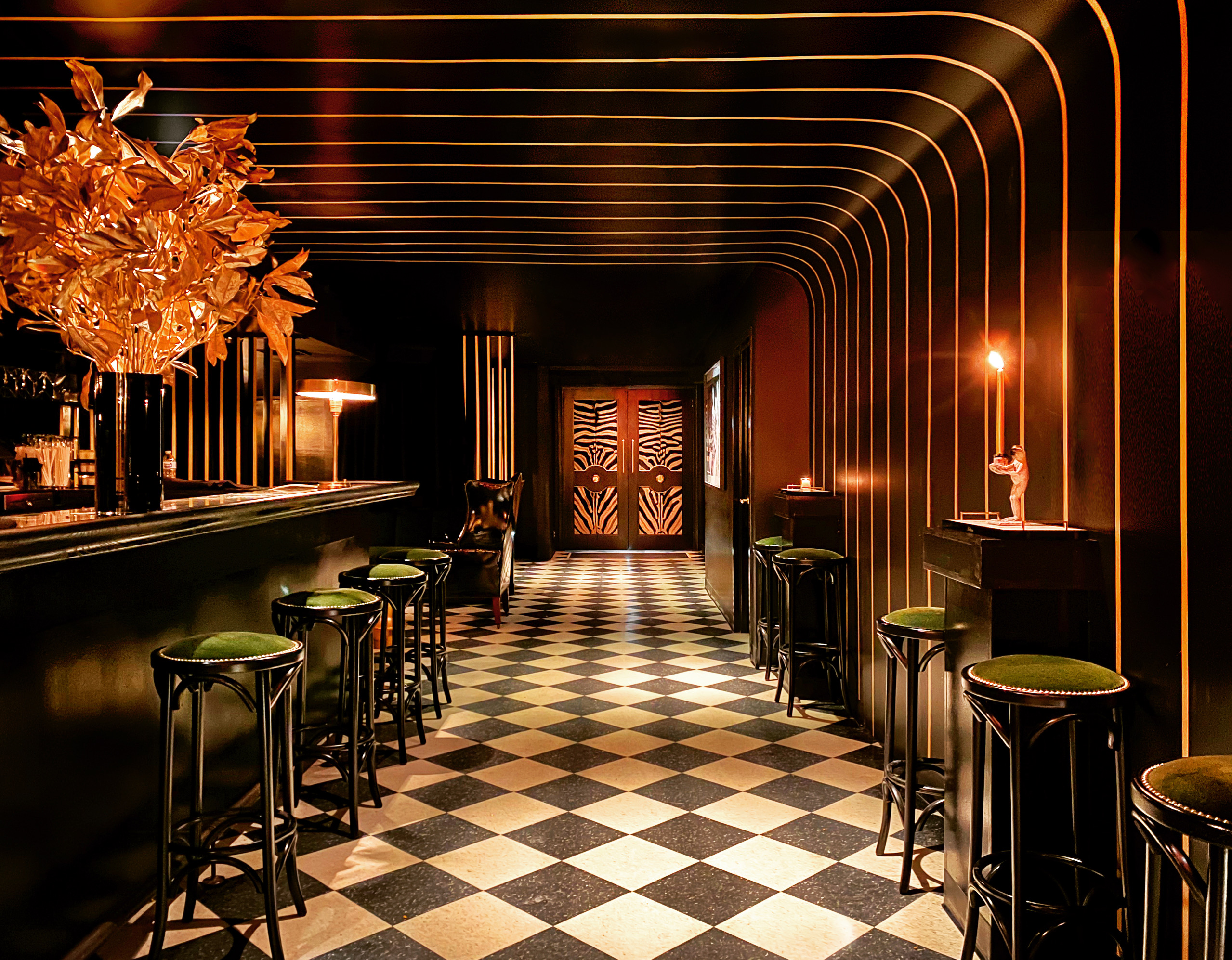
Inside Omar Hernandez new restaurant, Omar’s La Boîte. Photo by Cristina Macaya.
LABAYEN: I imagine there’s going to be a really big party to celebrate its opening. Who are you most excited to see come out to support you?
HERNANDEZ: Lin-Manuel Miranda.
LABAYEN: Do you have a white whale guest that you have been dying to get inside the doors of one of your Omar’s?
HERNANDEZ: Mick Jagger, for one reason or another, just because there’s so many things in my background that I love about him. I think it’s more about what could happen when they are there. A couple of years ago downtown, I had Al Pacino for New Year’s Eve, and it was that moment when I felt like a child, like, “Oh my God, this was an attempt to ask him or never.” And then I asked him to recite a little monologue from The Godfather when he’s telling the other guy he broke his heart. He said it to me there with his girlfriend, who was a friend of mine. I freaked out, like, “Holy shit, he’s telling me this right now!” Because I used that monologue while acting when I was in theater in my teens. Having that from the source, that kind of moment—that’s what I kind of long for.
LABAYEN: How do you keep the tension light when there’s someone controversial in the room?
HERNANDEZ: I think that’s part of the dance that we do in hospitality. I feel that I’m very blessed to have the opportunity to do what I do. So I take it very seriously when it comes to these moments when I know the stakes are high. When there was Donald Trump Jr. in the top room in the corner, I was holding my breath. And then Michael Cohen on the other corner. It’s like when you go to your mom’s house and you hate your brother but you have to behave with respect for it. We let them feel they are in their home. We are respectful that way, and we want to continue to be that. But it’s a challenge. Luckily, it doesn’t happen every night.
LABAYEN: How do you create a space that feels safe for so many celebrities without a fear of paparazzi corrupting this glamour you have so carefully curated?
HERNANDEZ: Discretion, discretion, discretion!
LABAYEN: What are some of your favorite artists to hang in your restaurants?
HERNANDEZ: I will have The Shadow Man by pioneering street artist Richard Hambleton in between my mirrored walls at the entrance. Photographer Hank O’Neal graciously gifted a blown up image of it before we opened, through his gallery Woodward Gallery. In La Boîte, I have the largest ever printed iconic image of Bianca on the White Horse at Studio 54 gifted by legendary photographer Rose Hartman. There are many great contemporary artists and friends I would love to showcase such as José Parlá, Mickalene Thomas, among other amazing artists.
LABAYEN: Working at Mercer Kitchen, do you remember the moment that distinguished you from a hospitality coordinator to the “Director of Spark”?
HERNANDEZ: There was a particular moment during Art Basel when we had Takashi Murakami being hosted at the penthouse of The Raleigh Hotel. All of a sudden, when he arrived, a flash mob came around him and my only instinct was to keep him put, so I got him a chair and had him sit in the middle of the room, which created a ripple effect and everyone cleared up for him. It was that moment I realized I was an “Awe Junkie.” Awesome moments turn me on more than anything else.

